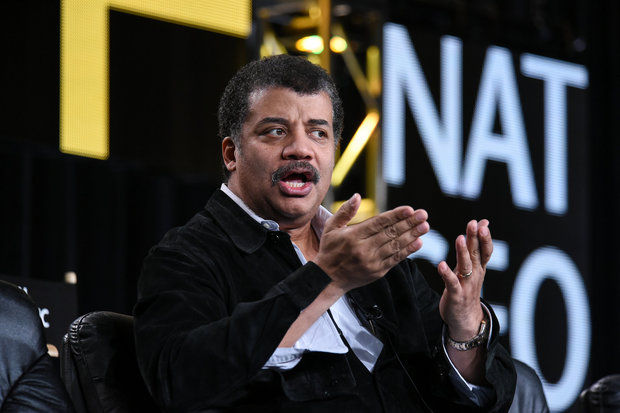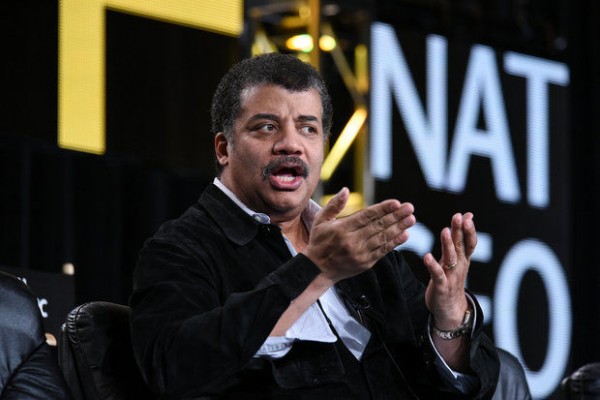
Neil deGrasse Tyson on Scientology, Bush Administration and Science, and Indiana’s RFRA
- By Alison Lesley --
- 10 Apr 2015 --

Neil deGrasse Tyson is a 56-year-old cosmologist and astrophysicist who is well-known for his several science shows, Cosmos: A Spacetime Odyssey, StarTalk, and ScienceNow, as well as a host of accomplishments under his belt.
Neil deGrasse Tyson has published many books, received 2 government commissions for the aerospace industry from George W. Bush, has served as the Frederick P. Rose Director of the Hayden Planetarium at New York’s Rose Center for Earth and Space Travel and he is receiving the NASA Distinguished Public Service Medal. He sat down for an interview with The Daily Beast to share his views on Scientology, Indiana’s Religious Freedom Law, and George W. Bush’s administration.
Digging Deep with Neil deGrasse Tyson
He feels that there is an existence of alien life. He said if you take into consideration how quickly the Earth formed, and how quickly life formed, along with the number of stars and planets and possibilities, “it would be inexcusably egocentric to suggest that we were the only life in the universe.” However, he urges people to consider the fact that the U in UFO “stands for Unidentified,” adding that it doesn’t mean aliens. It simply means you don’t know what it is. “You have no place to make that claim.”
He doesn’t quite understand all of the fuss about Scientology, comparing it with a biblical story:
“So, you have people who are certain that a man in a robe transforms a cracker into the literal body of Jesus saying that what goes on in Scientology is crazy? Let’s realize this: What matters is not who says who’s crazy, what matters is we live in a free country. You can believe whatever you want, otherwise it’s not a free country—it’s something else. If we start controlling what people think and why they think it, we have case studies where that became the norm. I don’t care what the tenets are of Scientology. They don’t distract me. I don’t judge them, and I don’t criticize them.”
But religions, if you analyze them, who is to say that one religion is rational and another isn’t?
When questioned about the controversy of making the religion tax-exempt, he counters, “But why aren’t they a religion? What is it that makes them a religion and others are religions?” He thinks it may be that people are more willing to accept a religion that is older, “If you’ve been around 1,000 years you’re a religion, and if you’ve been around 100 years, you’re a cult. That’s how people want to divide the kingdom.” He argues that Mormonism has similar space-centric beliefs, but does not get as much flack as Scientology: “There are ideas that are as space-exotic within Mormonism as there are within Scientology, and it’s more accepted because it’s a little older than Scientology is, so are we just more accepting of something that’s older?”
Tyson adds that the Constitution is religion-free for a reason. “If we are going to govern a country, we need to base that governance on objective truths – not on your belief system.”
He thinks the Religious Freedom Restoration Act (RFRA) law is a little “weird, that there’s a law that allows you to earn less money,” particularly in a capitalist democracy. He added that “we’ll see what comes of this.” On homophobia, he felt that people should simply be free. “The point here is that if you’re religious, and your religion tells you that being gay is bad, then don’t be gay. But you have to remind yourself that that’s your belief system, and there are other belief systems that don’t agree with that, so you should not be in the position to make legislation that affects other people.”


















